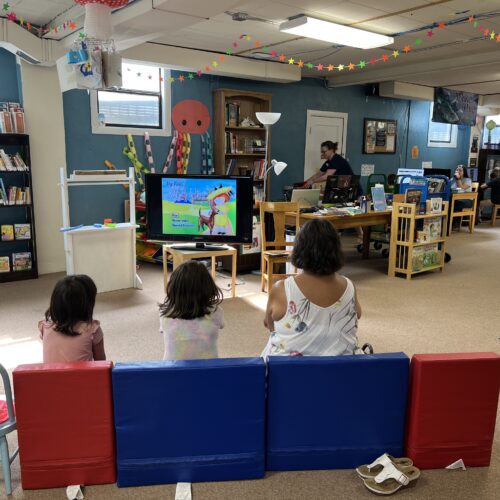
Southeastern Washington And North-Central Idaho Libraries Shush Talk Of Continuing Overdue Fines
READ ON
Patrons at several southeastern Washington and north-central Idaho libraries will no longer have to pay fines for overdue books.
Years ago libraries imposed fines on overdue materials as a way to get patrons to return their books on time. But librarians such as Mary Ann Funk at Lewiston High School say that’s a tool that doesn’t work as well as it used to.
“The fine thing we just started to sense was more of a barrier to access to our collections. It was disproportionately unfair to children and youth and families of lower income,” Funk said.
Her library is joining those in Lapwai and Orofino, Idaho and Clarkston and Asotin, Washington in abolishing fines.
“A lot of the libraries across the nation, this has been a national trend, have seen an uptick in circulation. More people are coming back. They’ve actually had long overdue lost items returned because people aren’t, that’s not a barrier, something they need to be concerned, oh my gosh, what will the fine be?” Funk said.
The move comes after other major library systems, including Seattle, San Francisco and Spokane, eliminated fines. In fact, spokeswoman Amanda Donovan says Spokane didn’t stop there.
“At the beginning of the year, the Board of Trustees unanimously voted to forgive all existing overdue fines and clear the accounts of over 13,000 customers. That’s going to restore borrowing privileges to 212 customers, including 23 children. So we’re really excited to see some of those customers come back in,” Donovan said.
She says Spokane has also eliminated printing fees for patrons, up to 50 copies a month.
“So, like if you need to come print your boarding pass, because we were finding that processing credit cards and cash handling and everything for a five cent copy was actually making us lose money and the staff time that goes into that sort of thing,” she said.
Even though the fines are gone, Donovan says there’s still a deterrent.
“If you keep your books more than 14 days after the due date, they are considered lost,” she said.
And you have to pay to replace them.
Spokane’s other library system, the Spokane County Library District, is considering whether to go fine free. Spokeswoman Jane Baker says the district is doing its homework to determine how eliminating fines would affect the budget.
“We’ve gone back over the past seven or eight years to see how the trend is going and the amount of revenue that does come in from overdue fines has dropped. It is suspected that a lot of that has dropped due to the use of e-books,” Baker said.
Patrons don’t have to return e-books; the library takes them back when they’re due. Baker says revenue from fines makes up less than 1% of the district’s budget.
She says the district is surveying users to gauge their opinions about eliminating fines. Then the question of whether to go forward with that may go to its board.
Copyright 2020 Spokane Public Radio. To see more, visit spokanepublicradio.org
Related Stories:

Measure to dissolve Dayton’s library won’t be on fall ballot
Kids and caretakers watch a “Madeline” DVD in the basement of the Columbia County Library on a hot Tuesday afternoon. (Credit: Courtney Flatt, Northwest News Network.) Listen (Runtime 0:58) Read

Comedian Paula Poundstone talks the importance of librarians and how to ‘Get back to being human’
We heard a rumor that Paula Poundstone was heading to our neck of the woods, so NWPB’s Thom Kokenge caught up with her to find out what she’s up to.

The return of the bookmobile to the Yakima Valley
After 25 five years, a library on wheels is driving again through the Yakima Valley. With a modern bookmobile, the libraries want to break down the barriers to accessing their services and provide fun experiences that bring communities together.
















